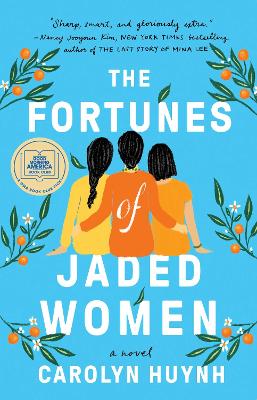This book follows three generations of Vietnamese women as they navigate life straddling both East and West cultures. At its heart are the often complicated relationships between not only the generations, but between sisters, between cousins. The story also explored how the younger generation may not always appreciate cultural traditions and ideals.
The author refers to her characters as “messy,” and this is true. But that’s also what makes them feel real, as they live between Vietnamese culture and American. Huynh wraps the messiness, and some very real and deep issues, with real emotion as well as humor and even some magical whimsy.
The theme of generational trauma is very much at the center of this book, and with it some same-race discrimination and misogynistic ideals. Some of the mothers within the middle generation speak to the former, warning their daughters against marrying Vietnamese men. Many of the mothers also express disappointment at having daughters rather than sons, as giving birth to sons is preferable over daughters. The ironic side of this is that it is the daughters who later care for the elders. There is racism, too, especially among the younger generation. There are many moments during which they are treated as if all Asians are the same. There is also a character who clearly fetishizes Asian women in an extremely uncomfortable way.
But while there are many moments that are deep and intense, there are also just as many moments that are tender and sweet, funny and hopeful, and, yes, sad. It’s a book that brings a culture to life, and that is utterly engrossing.
